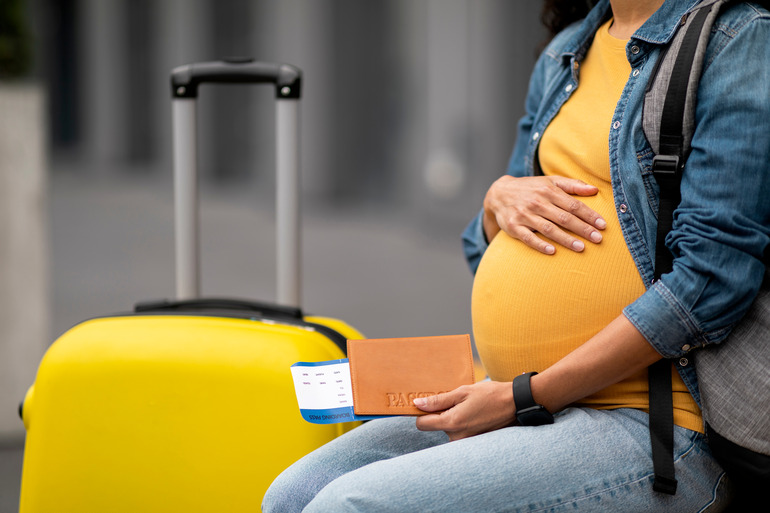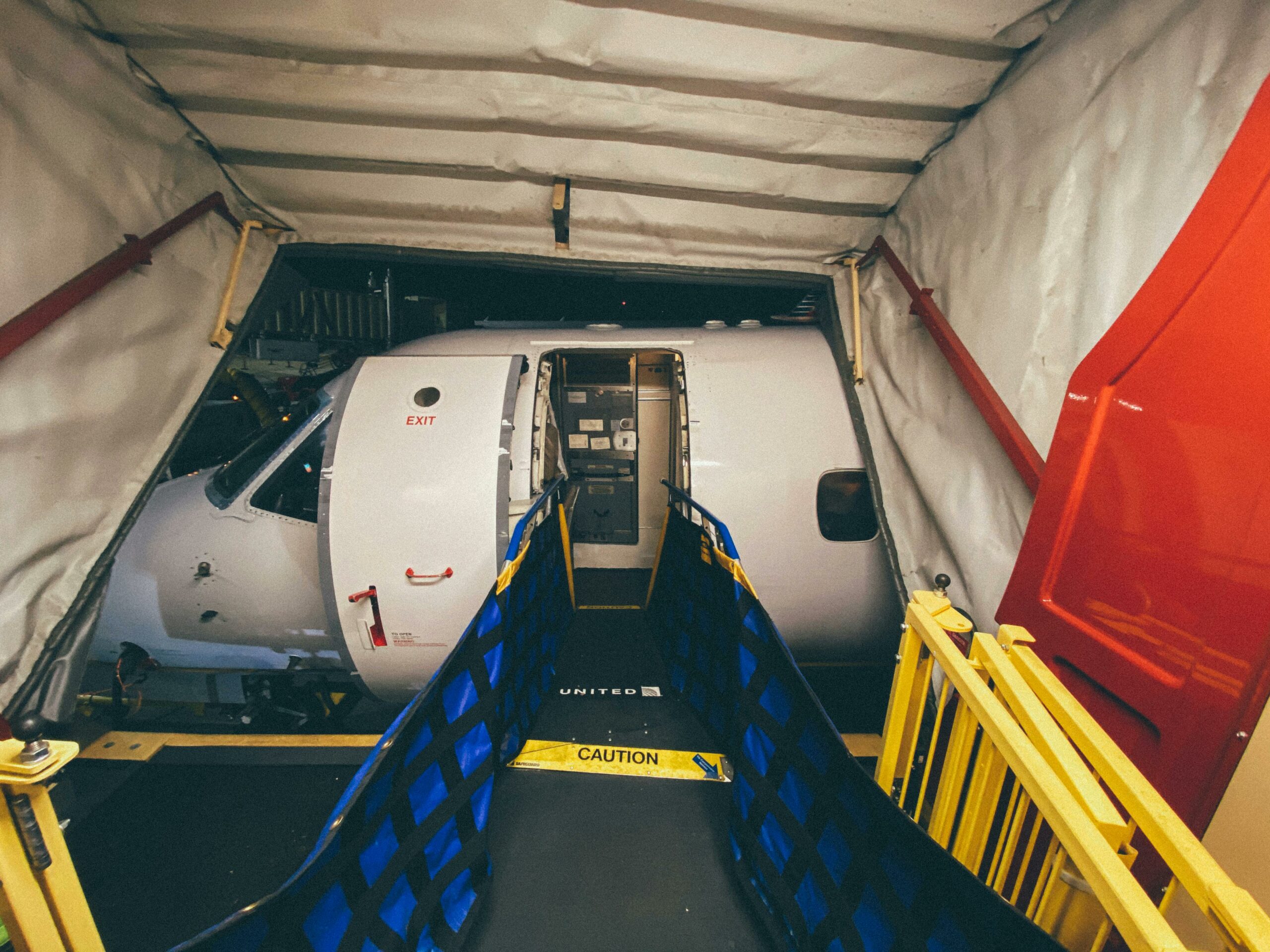Tips for Pregnant Women Flying on a Plane: What You Need to Know

Pregnancy is a joyous time for expecting mothers, but it can also be stressful, especially when it comes to traveling. Flying while pregnant can be a daunting experience, but with the right preparation and knowledge, it can be a breeze. This article aims to provide tips for women flying on a plane to help them have a safe and comfortable journey.
Traveling during pregnancy can have some risks, especially if you are in your third trimester. However, most airlines allow pregnant women to fly up to 36 weeks, as long as they have a fit-to-fly certificate from their doctor. It’s important to check with your airline’s policies regarding pregnancy before booking your flight. Additionally, pregnant women should take extra precautions to ensure their safety and comfort while flying.
In this article, we will cover essential tips for pregnant women flying on a plane, including what to pack, when to fly, and how to stay comfortable during the flight. By following these tips, pregnant women can have a stress-free and enjoyable travel experience.
Understanding Airline Policies about Pregnant Women

When it comes to flying while pregnant, understanding airline policies is crucial to ensure a smooth and stress-free travel experience. Here are some key points to keep in mind:
Airline-Specific Regulations
Different airlines have different policies regarding pregnant passengers, so it’s important to check with the airline ahead of time. Some airlines may require a doctor’s note or medical clearance, while others may have restrictions on the number of weeks pregnant a passenger can be. For example, British Airways allows these passengers to fly up to 36 weeks, while Air Canada allows up to 35 weeks.
Documentation Requirements
Many airlines require pregnant passengers to provide medical documentation, such as a doctor’s note or certificate of fitness to fly. This documentation should include the expected due date, confirmation that the pregnancy is progressing normally, and any other relevant information. It’s important to check with the airline ahead of time to ensure that all necessary documentation is provided.
Restrictions by Trimester
Some airlines have specific restrictions based on the trimester of pregnancy. For example, Cathay Pacific does not allow pregnant passengers to fly after 36 weeks, while Emirates requires a medical certificate for passengers who are 28 weeks pregnant or more. It’s important to check with the airline to determine any specific restrictions and plan travel accordingly.
Health and Safety Precautions

Consulting with Healthcare Providers
Pregnant women who plan to fly should consult with their healthcare providers first. They can provide guidance on whether it is safe to travel, especially if there are any medical complications. It is also important to ask for a medical certificate to show the airline that the pregnancy is not high-risk.
Recognizing Risk Factors
There are several risk factors that pregnant women should be aware of when flying. These include the increased risk of blood clots, morning sickness, premature labor, miscarriage, bleeding, and other medical complications. Women who are experiencing vaginal bleeding or have placenta previa should avoid flying altogether.
Preventing Discomfort and Complications
To prevent discomfort and complications while flying, pregnant women should wear compression socks to improve blood circulation and reduce the risk of blood clots. They should also stay hydrated, avoid alcohol and caffeine, and take breaks to stretch their legs. If they experience any medical symptoms such as preeclampsia or deep vein thrombosis, they should seek medical attention immediately.
Travel Comfort and Management
Pregnancy can be challenging, especially when traveling by air. However, with a little preparation and planning, pregnant women can still have a comfortable and safe flight. Here are some tips for managing travel discomfort during pregnancy.
Choosing the Best Seats
When booking a flight, it is important for pregnant women to choose the best seats that will provide maximum comfort and safety. It is recommended to choose an aisle seat for easy access to the restroom and for stretching legs. Additionally, pregnant women should avoid sitting in the emergency exit row or bulkhead seats, as they may not have enough space to stretch their legs.
Managing Nausea and Hydration
Nausea is a common symptom experienced during pregnancy, and traveling by air can exacerbate it. Pregnant women should consult their healthcare provider before flying and ask for medication to manage nausea if necessary. Additionally, it is important to stay hydrated during the flight by drinking plenty of water or non-carbonated drinks.
Mobility and Circulation
Pregnant women are at risk of developing swelling and blood clots during long flights. To prevent this, it is recommended to wear compression socks and to take frequent walks around the cabin. Pregnant women should also exercise their feet and legs by doing simple stretches and rotating their ankles to improve circulation.
By following these tips, pregnant women can have a comfortable and safe flight. It is important to consult with a healthcare provider before flying and to take necessary precautions to ensure a smooth journey.
Practical Tips for the Journey
Packing Essentials
When packing for a flight, pregnant women should make sure to bring all necessary items to ensure a comfortable journey. This includes loose and comfortable clothing, compression socks to prevent swelling, and snacks to keep energy levels up. It is also recommended to bring a neck pillow and a light blanket for added comfort during the flight.
Navigating Airports
Navigating airports can be overwhelming for anyone, but pregnant women should take extra precautions to make the experience as stress-free as possible. It is recommended to arrive at the airport early to allow time for security and boarding procedures. Pregnant women should also inform the airline staff of their condition, as they may require special assistance or accommodations.
Technology and Entertainment
Technology and entertainment can be a great way to pass the time during a flight. Pregnant women should consider downloading meditation or relaxation apps to help reduce stress and anxiety. It is also recommended to bring a tablet or laptop loaded with movies and TV shows to keep the mind occupied during the flight.
International Travel Considerations
Understanding International Restrictions
When traveling internationally during pregnancy, it is important to understand the restrictions that may be in place for pregnant women. Some countries have specific rules and regulations regarding pregnant travelers, and it is essential to research these before booking any travel plans.
For example, some airlines may require a doctor’s note stating that the pregnancy is uncomplicated and the due date is not within a certain timeframe before allowing a pregnant woman to fly. Additionally, some countries may have restrictions on the length of stay for pregnant travelers or may require additional medical documentation.
Travel Insurance and Safety
When traveling internationally during pregnancy, it is important to consider purchasing travel insurance that covers pregnancy-related issues. This can provide peace of mind and financial protection in case of any complications or unexpected events.
It is also essential to take precautions to ensure the safety and comfort of the pregnant traveler during the flight. This may include choosing an aisle seat for easy access to the restroom and stretching, wearing comfortable clothing and shoes, and staying hydrated throughout the flight.
Overall, pregnant women should carefully consider the potential risks and restrictions before traveling internationally and take necessary precautions to ensure a safe and comfortable trip.
Preparing for Potential Emergencies
Pregnant women who are planning to fly should take precautions to prepare for potential emergencies. This section outlines some important steps to take before boarding a plane.
Emergency Medical Care
It is important for pregnant women to be aware of the medical facilities available on the flight and at the destination. They should also have a healthcare provider’s contact information on hand in case of an emergency. In case of any medical emergency, the flight attendants should be notified immediately.
It is also recommended that these women carry a copy of their medical records, especially if they have any pre-existing medical conditions. This will help in case they require medical attention during the flight or at their destination.
Flight Diversions and Delays
Pregnant women should be aware of the risks of flight diversions and delays. In case of a diversion or delay, they should inform their healthcare provider and travel insurance company as soon as possible.
It is important for them to stay hydrated during the flight and to take regular walks around the cabin to prevent the risk of blood clots. They should also carry a small bag with essential items such as medications, snacks, and water.
In case of a risk of miscarriage, pregnant women should avoid flying during the first and third trimesters of pregnancy. They should also consult their healthcare provider before flying and follow their advice.

